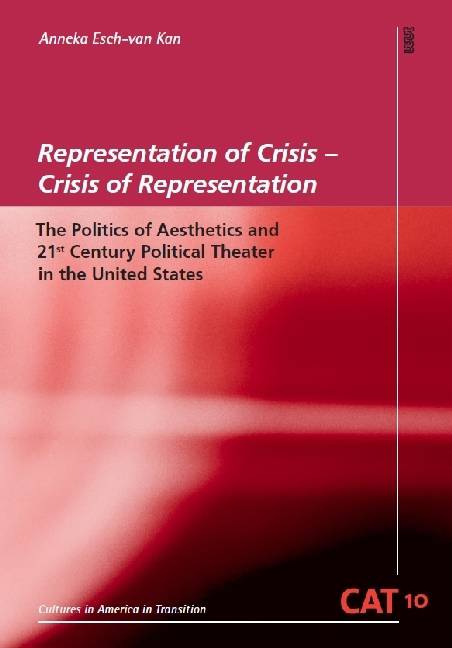
- Retrait gratuit dans votre magasin Club
- 7.000.000 titres dans notre catalogue
- Payer en toute sécurité
- Toujours un magasin près de chez vous
- Retrait gratuit dans votre magasin Club
- 7.000.0000 titres dans notre catalogue
- Payer en toute sécurité
- Toujours un magasin près de chez vous
Representation of Crisis - Crisis of Representation
The Politics of Aesthetics and 21st Century Political Theater in the United States
Anneka Esch-van Kan
29,95 €
+ 59 points
Description
There was an epochal upswing of political theater on American stages in the years between 2001 and 2008. "Representation of Crisis - Crisis of Representation" starts from a reflection of theatrical responses to the terrorist attacks of September 11, 2001 and distinguishes several developments and phenomena within the American theater in the first decade of the Twenty-First Century. Performances that explore the limits between life and art, new forms of political musicals, emerging variants of an American documentary theater, performances that highlight questions of national identity and pride, the "birth" of an Arab-American theater, and new playwriting on the experience of soldiers in the battlefield: The division between these "distinctive cultural forms" builds on the rich diversity of American political theater at the time. The set of performances that are analyzed in depth, however, is determined by the degree to which they are bound to the theoretical background of the study. Drawing on the philosophy of Jacques Rancière "Representation of Crisis - Crisis of Representation" contributes to the theorization of political theater by working out similarities between Rancière's thinking and various approaches to "the political in theater." An analysis of shared concerns among Rancière's approach, general features of a distinction between politics and the political, theoretical discussions of the political in theater and recent trends and phenomena in contemporary performance build the theoretical basis. The aim is not to arrive at an original and all-encompassing definition of political theater or to proclaim normative standards for political art, but to highlight tensions and relational structures that might advance our understanding of the way in which theater and the arts can be political.
Spécifications
Parties prenantes
- Auteur(s) :
- Editeur:
Contenu
- Nombre de pages :
- 244
- Langue:
- Anglais
- Collection :
- Tome:
- n° 10
Caractéristiques
- EAN:
- 9783868216899
- Format:
- Livre broché
- Dimensions :
- 155 mm x 225 mm
- Poids :
- 459 g

Les avis
Nous publions uniquement les avis qui respectent les conditions requises. Consultez nos conditions pour les avis.






